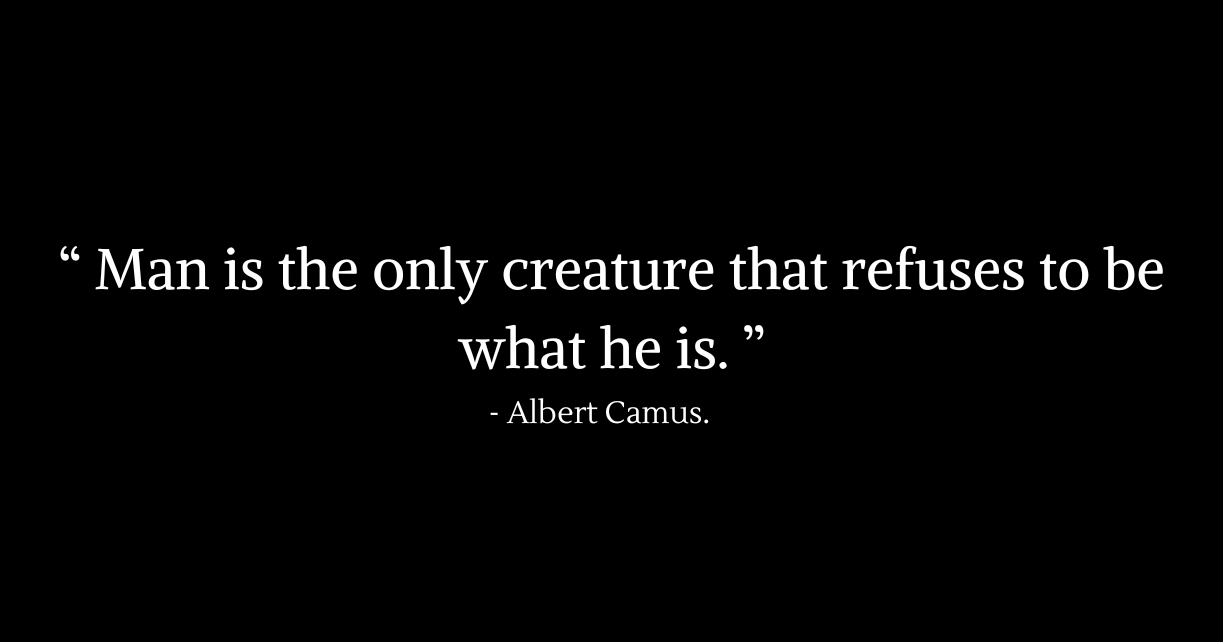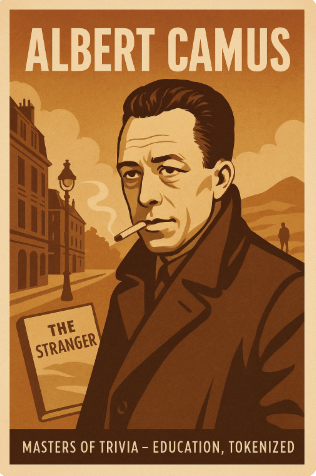- KRONIKL
- Posts
- The Birth of a Nobel Icon
The Birth of a Nobel Icon
From Absurdism to Immortality: Camus Quiz Inside
Dear Reader,
It’s Friday, November 7, 2025. I am Dom Einhorn, your lead curator, and here are your insights into what makes this day in history relevant today. First time reading? Join our community of intellectually curious readers who explore the history behind every day. [Sign up here]
Spread the word: Share this email with friends (copy URL here).

BROUGHT TO YOU BY…
Throughout history, trivia has always been more than a game.
In ancient Greece, scholars tested each other’s wit in symposiums. In 12th-century Baghdad, thinkers debated questions in bustling libraries. Even in medieval Europe, monarchs used riddles and logic games to assess the sharpness of their advisors.
Today, a new chapter in that centuries-old tradition is being written, one that blends human curiosity with cutting-edge Web3 technology.
We’re proud to announce the launch of the MOT Token on GeckoTerminal, the official utility token of the Masters of Trivia platform. Built on the Solana blockchain and backed by a thriving global community of over 200,000 players, MOT is the first step in transforming trivia into an economic, educational, and social engine for the 21st century.
👉 The Token is now live on DEX (decentralized exchanges): secure them tokens early: See MOT Token »
The Birth of a Nobel Icon
👉Marquee Event
On November 7, 1913, Albert Camus was born in Mondovi, Algeria, then a French colony. A novelist, journalist, and philosopher, Camus would rise to global prominence in the mid-20th century as one of the most influential literary voices of the modern age.
Best known for his 1942 novel The Stranger (L’Étranger), Camus explored themes of absurdism, alienation, rebellion, and the meaning of existence. He later received the Nobel Prize in Literature in 1957 for illuminating the “problems of the human conscience” with “clarity and sincerity.”
📌 Why This Matters
Camus was more than just a writer, he was a moral force in a fractured world. Writing in the aftermath of World War II, totalitarianism, and colonial unrest, Camus challenged readers to face life’s absurdity head-on, without illusion or despair.
He stood apart from the existentialists like Sartre by promoting hope, revolt, and personal responsibility over nihilism or dogma. His famous concept of the “absurd hero” is embodied in characters who embrace life in the face of meaninglessness, none more iconic than Meursault in The Stranger.
Camus's political stances—especially his refusal to support revolutionary violence during the Algerian War—made him controversial, but also deeply principled.
🎯 How Much do you Know about Albert Camus?
Camus was the second youngest Nobel laureate in Literature, winning the prize at age 44. Yet he died tragically just three years later, in a car crash in 1960, with an unused train ticket in his pocket.
A posthumous manuscript, The First Man, revealed a tender portrait of his childhood and struggles with identity—French, but Algerian-born; philosopher, yet anti-system; atheist, but spiritually restless.
Even today, Camus’s works are widely studied in philosophy, literature, and political ethics courses around the world. His quotes—“In the depth of winter, I finally learned that within me there lay an invincible summer”—still resonate.
👉 Play our Albert Camus quiz now.
Quote of the Day


Why KRONIKL? Inspired by the timeless concept of chronicles, KRONIKL is dedicated to bringing you the most intriguing, thought-provoking stories from this date. Culture, science, politics, and more — all condensed for a quick, insightful read that connects your present with our past.
*Disclosure: Masters of Trivia is a quiz platform founded by Dom Einhorn and owned by Intelligent Games LLC—the same company that brings you the KRONIKL newsletter.


Reply